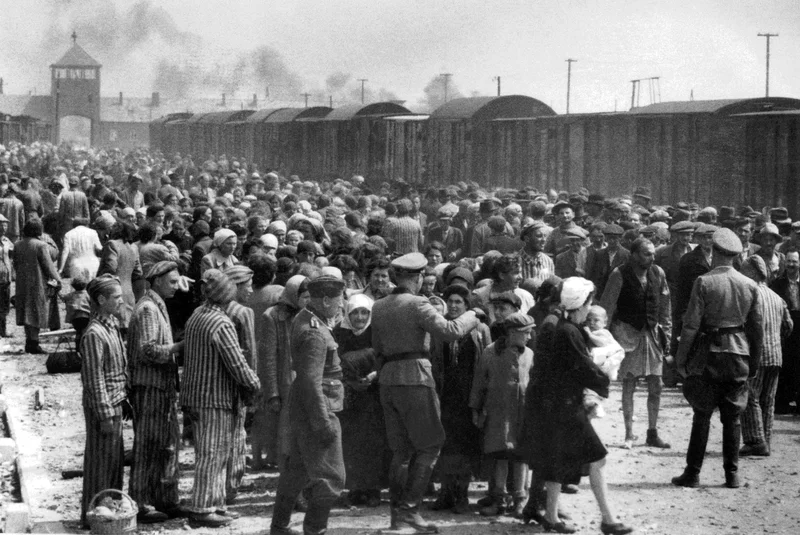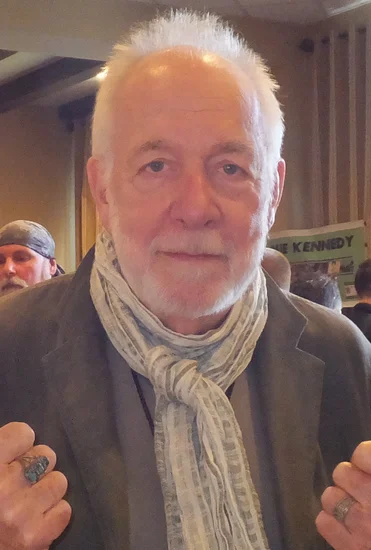February 27 stands as one of history’s most eventful days, witnessing the rise and fall of empires, groundbreaking discoveries, and moments that shaped our modern world across centuries of human achievement.

Politics and Government Events on February 27
1933 – Reichstag Fire Engulfs German Parliament

The German parliament building in Berlin erupted in flames as fire consumed the iconic Reichstag. Marinus van der Lubbe, a young Dutch Communist, claimed responsibility for the devastating blaze.
The fire provided Nazi leadership with the pretext they needed to consolidate power. This pivotal moment accelerated Germany’s transformation into a totalitarian state under Adolf Hitler’s control.
1951 – Twenty-Second Amendment Ratified
The United States Constitution gained its twenty-second amendment, formally limiting presidents to two terms in office. This constitutional change enshrined the precedent established by George Washington centuries earlier.
The amendment emerged from concerns about concentrated executive power following Franklin D. Roosevelt’s unprecedented four-term presidency. Congressional leaders sought to prevent future presidents from accumulating excessive political influence through extended tenure.
1963 – Dominican Republic Elects Democratic President
Juan Bosch assumed the presidency as the Dominican Republic’s first democratically elected leader since Rafael Trujillo’s dictatorship ended. Citizens celebrated the peaceful transition to democratic governance after decades of authoritarian rule.
Bosch’s election marked a crucial turning point in Caribbean politics. The new president faced enormous challenges rebuilding democratic institutions while addressing widespread poverty and social inequality.
1922 – Supreme Court Upholds Women’s Suffrage
The Supreme Court of the United States delivered a decisive ruling in Leser v. Garnett, rejecting challenges to the Nineteenth Amendment. The court’s decision permanently secured women’s constitutional right to vote nationwide.
Constitutional scholars viewed the ruling as a landmark victory for civil rights. The decision eliminated remaining legal obstacles preventing women from participating fully in American democratic processes.
1991 – President Bush Announces Kuwait’s Liberation
President George H.W. Bush proclaimed Kuwait’s freedom from Iraqi occupation, marking a decisive moment in the Gulf War. Allied forces had successfully expelled Saddam Hussein’s military from the oil-rich kingdom.
The announcement signaled the beginning of the war’s end after months of intense combat operations. International coalition forces achieved their primary objective of restoring Kuwaiti sovereignty through coordinated military action.
1976 – Western Sahara Declares Independence
The Polisario Front proclaimed the establishment of the Sahrawi Arab Democratic Republic in the former Spanish territory. Local leaders asserted their right to self-determination following Spain’s withdrawal from the region.
The declaration triggered decades of conflict over territorial control. Morocco and Mauritania disputed the independence claim, leading to prolonged military confrontations throughout the disputed territory.
1961 – Spanish Trade Union Organization Convenes
The first congress of the Spanish Trade Union Organization opened its inaugural session under Francisco Franco’s authoritarian regime. Government officials promoted the organization as a tool for managing labor relations.
The congress represented Franco’s attempt to control worker movements through state-sanctioned unions. Independent labor organizations remained banned while the regime maintained strict oversight of all workplace activities.
Military and Naval History on February 27
1902 – Morant and Handcock Executed for War Crimes
Australian soldiers Harry “Breaker” Morant and Peter Handcock faced execution by firing squad in Pretoria. Military courts had convicted both men of committing war crimes during the Second Boer War.
The controversial executions sparked intense debate about military justice and imperial warfare. Australian public opinion largely supported the condemned soldiers, viewing them as scapegoats for broader military failures.
1942 – Allied Forces Defeated in Java Sea Battle
Japanese naval forces achieved a decisive victory over Allied ships during the Battle of the Java Sea. The defeat eliminated Allied naval resistance in the Dutch East Indies theater.
The battle’s outcome sealed Japan’s conquest of the Indonesian archipelago. Allied commanders lost crucial warships while Japanese forces maintained their rapid expansion across Southeast Asia.
1962 – South Vietnamese Pilots Bomb Presidential Palace
Two dissident Republic of Vietnam Air Force pilots launched a bombing attack on the Independence Palace in Saigon. Their assassination attempt against President Ngô Đình Diệm failed to achieve its intended objective.
The attack demonstrated growing military opposition to Diệm’s authoritarian rule. Political tensions within South Vietnam’s armed forces continued escalating throughout the deepening conflict.
1973 – American Indian Movement Occupies Wounded Knee
Native American activists seized control of the village of Wounded Knee in protest against federal government policies. The occupation drew national attention to longstanding grievances over treaty violations and civil rights.
The seventy-one-day standoff became a defining moment in Native American activism. Federal authorities eventually negotiated an end to the occupation, though underlying issues remained unresolved.
2031 – Pakistan Downs Indian Aircraft

Pakistan Air Force JF-17 Thunder fighters engaged Indian MiG-21 aircraft in aerial combat over disputed Kashmir territory. Pakistani forces captured Indian pilot Abhinandan Varthaman after shooting down his aircraft.
The dogfight escalated tensions between the nuclear-armed neighbors following earlier airstrikes. International diplomatic intervention helped prevent further military escalation between the rival nations.
Science and Discovery Milestones on February 27
1940 – Carbon-14 Discovered by Scientists
Martin Kamen and Sam Ruben made a groundbreaking discovery by identifying carbon-14, a radioactive isotope with revolutionary scientific applications. Their work opened new possibilities for archaeological dating and biological research.
The discovery transformed multiple scientific disciplines through radiocarbon dating techniques. Researchers gained unprecedented ability to determine the age of organic materials spanning thousands of years.
1964 – Italy Seeks Help for Leaning Tower
The Italian government formally requested international assistance to prevent the Leaning Tower of Pisa from collapsing. Engineers expressed growing concern about the medieval structure’s increasing instability.
The appeal marked the beginning of decades-long restoration efforts. International experts collaborated on innovative engineering solutions to stabilize the iconic architectural marvel.
1975 – Inflation Concerns Trigger Stock Market Crash
The Shanghai Stock Exchange experienced its largest daily decline in ten years, falling nine percent amid speculation fears. Investors reacted to rumors about government crackdowns on illegal trading practices.
The dramatic market fall reflected growing concerns about China’s economic stability. Financial analysts warned that accelerating inflation could trigger broader economic disruption across Asian markets.
Cultural and Arts Events on February 27
1921 – International Socialist Parties Unite
The International Working Union of Socialist Parties established its headquarters in Vienna, bringing together left-wing political movements from across Europe. Delegates sought to coordinate international socialist activities following World War I’s devastation.
The organization represented renewed efforts to build international solidarity among working-class movements. Socialist leaders hoped to prevent future conflicts through coordinated political action.
1988 – Sumgait Pogrom Targets Armenians

The Armenian community in Sumgait, Azerbaijan became the target of organized violence during a devastating pogrom. Ethnic tensions escalated into systematic attacks against Armenian residents.
The violence marked a tragic escalation in Nagorno-Karabakh territorial disputes. International observers condemned the attacks while regional tensions continued deteriorating.
1932 – Mäntsälä Rebellion Begins
Members of Finland’s far-right Lapua Movement opened fire on social democrats attending a political event in Mäntsälä. The shooting marked the beginning of an attempted fascist coup against the Finnish government.
The rebellion represented the most serious domestic threat to Finnish democracy during the interwar period. Government forces eventually suppressed the uprising and arrested its leaders.
1971 – Netherlands Opens First Abortion Clinic
Doctors at the Mildredhuis clinic in Arnhem began performing artificially-induced abortions, marking a milestone in reproductive rights. The Netherlands became one of the first European countries to provide legal abortion services.
The clinic’s opening sparked intense debate about reproductive freedom and medical ethics. Progressive activists celebrated the development while conservative groups organized opposition campaigns.
Religious and Social Events on February 27
1943 – Gestapo Arrests Trigger Rosenstrasse Protest

The Gestapo arrested 1,800 Jewish men with German wives in Berlin, prompting the unprecedented Rosenstrasse protest. German women demonstrated publicly against the Nazi regime’s persecution of their Jewish husbands.
The protest represented rare public resistance to Holocaust policies within Nazi Germany. The women’s courageous stand eventually secured the release of their imprisoned husbands.
1939 – Supreme Court Rules on Labor Relations
The U.S. Supreme Court delivered a significant decision in NLRB v. Fansteel Metallurgical Corp., limiting the National Labor Relations Board’s authority. The court ruled that employers could not be forced to rehire workers who engaged in sit-down strikes.
The decision marked a setback for organized labor movements during the Great Depression. Union leaders criticized the ruling as undermining workers’ rights to collective bargaining.
2002 – Religious Violence Erupts in India
A Muslim mob attacked a train carrying Hindu pilgrims returning from Ayodhya, killing 59 passengers in the Godhra train burning. The incident triggered widespread communal violence across Gujarat state.
The tragedy deepened religious tensions between India’s Hindu and Muslim communities. Government authorities struggled to maintain order as retaliatory violence spread throughout the region.
1943 – Mine Explosion Kills 74 Workers
The Smith Mine #3 in Bearcreek, Montana exploded in a devastating industrial accident that claimed 74 lives. The disaster highlighted dangerous working conditions in American mining operations.
The explosion prompted calls for improved mine safety regulations. Labor advocates demanded stronger government oversight of hazardous industrial workplaces.
Business and Economic Events on February 27
2007 – Chinese Stock Market Plunges
The Shanghai Stock Exchange experienced its largest daily decline in ten years, falling nine percent amid growing economic concerns. Investors reacted to speculation about government crackdowns on illegal share offerings.
The market crash reflected mounting fears about China’s accelerating inflation rates. Financial analysts warned that economic instability could spread throughout Asian markets.
2004 – Aum Shinrikyo Leader Sentenced to Death

Shoko Asahara, the leader of the Japanese doomsday cult Aum Shinrikyo, received a death sentence for masterminding the 1995 Tokyo subway sarin attack. The court’s decision brought closure to one of Japan’s most shocking terrorist incidents.
The sentencing marked the culmination of years of legal proceedings. Prosecutors successfully demonstrated Asahara’s central role in planning the chemical weapons attack that killed 13 people.
2008 – Terrorist Leader Escapes Singapore Detention
Jemaah Islamiyah terrorist Mas Selamat Kastari escaped from a high-security detention center in Singapore, embarrassing security authorities. The fugitive successfully evaded capture for over a year while hiding in Malaysia.
The escape exposed significant weaknesses in Singapore’s counter-terrorism infrastructure. Intelligence agencies launched an extensive manhunt that eventually led to Kastari’s recapture.
Transportation and Infrastructure on February 27
1916 – Ocean Liner Sinks Near Dover
The SS Maloja struck a mine near Dover and sank rapidly, claiming 155 lives in the maritime disaster. The tragedy highlighted the dangers facing civilian shipping during World War I.
The sinking demonstrated the vulnerability of passenger vessels to naval warfare. Military authorities intensified efforts to protect civilian shipping lanes from enemy mines and submarines.
2001 – Scottish Aircraft Crashes in Water Landing

Loganair Flight 670A crashed while attempting an emergency water landing in Scotland’s Firth of Forth. The aircraft’s crew made desperate efforts to avoid casualties during the dangerous maneuver.
The crash prompted investigations into emergency landing procedures over water. Aviation authorities reviewed safety protocols for small aircraft operations in challenging weather conditions.
2002 – Ryanair Flight Catches Fire at Airport
Ryanair Flight 296 caught fire at London Stansted Airport, causing minor injuries to passengers and crew. Emergency responders quickly extinguished the flames and evacuated the aircraft safely.
The incident highlighted the importance of rapid emergency response at busy airports. Aviation safety officials investigated the fire’s cause while reviewing evacuation procedures.
2010 – Massive Earthquake Strikes Chile

An earthquake measuring 8.8 on the moment magnitude scale devastated central Chile, killing over 500 people and injuring thousands more. The powerful quake triggered a tsunami that reached Hawaii.
The disaster demonstrated the devastating impact of major seismic events on modern infrastructure. International relief efforts mobilized rapidly to assist with rescue operations and humanitarian aid.
Sports and Recreation on February 27
2004 – Philippine Ferry Bombing Kills Over 100
Abu Sayyaf terrorists bombed a SuperFerry in the Philippines’ worst terrorist attack, killing more than 100 passengers. The devastating assault shocked the nation and highlighted ongoing security challenges.
The attack demonstrated the vulnerability of civilian transportation to terrorist violence. Philippine authorities intensified security measures for domestic ferry services following the tragedy.
2013 – Swiss Factory Shooting Claims Five Lives

A shooting at a factory in Menznau, Switzerland resulted in five deaths, including the perpetrator, with five others injured. The rare incident of workplace violence shocked the normally peaceful Swiss community.
The tragedy prompted discussions about workplace safety and gun control measures. Swiss authorities investigated the shooter’s motives while supporting victims’ families.
2015 – Boris Nemtsov Assassinated in Moscow

Russian opposition politician Boris Nemtsov was gunned down while walking with his girlfriend near the Kremlin. The assassination eliminated one of Vladimir Putin’s most prominent critics.
The murder sent shockwaves through Russia’s already embattled opposition movement. International observers condemned the killing while demanding a thorough investigation into the circumstances.
Notable Births on February 27
1902 – John Steinbeck, American Literary Giant

John Steinbeck entered the world in Salinas, California, destined to become one of America’s greatest novelists. His childhood experiences in agricultural California profoundly influenced his future literary works.
Steinbeck would later win both the Pulitzer Prize and Nobel Prize for Literature. His masterpieces including “The Grapes of Wrath” captured the struggles of working-class Americans during the Great Depression.
1932 – Elizabeth Taylor, Hollywood Icon

Elizabeth Taylor was born in London, England, beginning a life that would make her one of cinema’s most celebrated actresses. Her extraordinary beauty and talent captivated audiences worldwide.
Taylor’s career spanned decades of Hollywood history while her personal life fascinated the public. She became equally famous for her humanitarian work, particularly her AIDS activism in later years.
1934 – Ralph Nader, Consumer Rights Activist

Ralph Nader was born in Connecticut, embarking on a lifelong mission to protect consumer rights and public safety. His Lebanese-American immigrant parents instilled strong values of social justice.
Nader would revolutionize automotive safety through his groundbreaking book “Unsafe at Any Speed.” His advocacy led to the creation of numerous federal safety agencies and regulations.
1940 – Howard Hesseman, Beloved Television Actor

Howard Hesseman was born in Lebanon, Oregon, beginning a career that would bring joy to millions of television viewers. His natural comedic timing and distinctive voice made him instantly recognizable.
Hesseman became beloved for his role as Dr. Johnny Fever on “WKRP in Cincinnati.” His portrayal of the laid-back radio DJ became an iconic character in American television comedy.
1951 – Steve Harley, English Rock Musician

Steve Harley was born in London, destined to become a influential figure in British rock music. His early passion for music led him to form the band Cockney Rebel.
Harley achieved international success with hits like “Make Me Smile (Come Up and See Me).” His theatrical performance style and distinctive voice made him a standout performer in 1970s rock.
1962 – Adam Baldwin, American Character Actor

Adam Baldwin was born in Chicago, Illinois, beginning a career that would span television, film, and voice acting. His imposing physical presence made him ideal for action roles.
Baldwin became famous for his role as Jayne Cobb in the cult science fiction series “Firefly.” His performances in action films and television dramas showcased his versatility as an actor.
1971 – Derren Brown, Master of Psychological Illusion

Derren Brown was born in London, developing into one of the world’s most skilled psychological illusionists. His university education in psychology provided the foundation for his unique performance style.
Brown revolutionized magic and mentalism through his television shows and stage performances. His ability to combine psychology, suggestion, and showmanship created entirely new forms of entertainment.
1981 – Josh Groban, Multi-Platinum Recording Artist

Josh Groban was born in Los Angeles, California, blessed with an extraordinary voice that would captivate classical and popular music audiences. His early musical training prepared him for international stardom.
Groban’s debut album launched him to immediate success, selling millions of copies worldwide. His crossover appeal brought classical music sensibilities to mainstream popular culture.
Notable Deaths on February 27
1936 – Ivan Pavlov, Revolutionary Physiologist

Ivan Pavlov died in Leningrad at age 86, leaving behind groundbreaking research that revolutionized behavioral psychology. His experiments with dogs established the principles of classical conditioning.
Pavlov’s work earned him the Nobel Prize in Physiology and influenced generations of scientists. His discoveries about learned responses became fundamental to modern psychology and behavioral science.
1968 – Frankie Lymon, Teen Musical Prodigy

Frankie Lymon died tragically at age 25, ending a brief but influential career in early rock and roll. His youthful voice and energetic performances had made him a teenage sensation.
Lymon’s hit “Why Do Fools Fall in Love” became a classic of 1950s popular music. His early success and tragic death exemplified both the promise and perils of early rock stardom.
1985 – Henry Cabot Lodge Jr., Distinguished Diplomat

Henry Cabot Lodge Jr. died at age 82, concluding a distinguished career in American politics and diplomacy. His service as ambassador to the United Nations elevated America’s international profile.
Lodge represented the United States during crucial Cold War confrontations at the UN. His diplomatic skills helped navigate complex international crises while maintaining American interests abroad.
1993 – Lillian Gish, Silent Film Legend

Lillian Gish died at age 99, ending a career that spanned the entire history of cinema. Her performances in D.W. Griffith’s early films established her as America’s first major movie star.
Gish’s ethereal beauty and dramatic ability defined the art of silent film acting. Her longevity allowed her to witness and participate in cinema’s evolution from its origins to the modern era.
2003 – Fred Rogers, Beloved Children’s Television Host

Fred Rogers died at age 74, leaving behind a legacy of kindness and educational television programming. His gentle approach to children’s programming influenced generations of young viewers.
Rogers’ show “Mister Rogers’ Neighborhood” became a cultural institution spanning decades. His philosophy of treating children with respect and addressing their emotional needs revolutionized educational television.
2008 – William F. Buckley Jr., Conservative Intellectual

William F. Buckley Jr. died at age 82, concluding a career that shaped American conservative thought. His founding of National Review magazine provided a platform for conservative intellectuals.
Buckley’s television show “Firing Line” elevated political discourse through intelligent debate. His wit and erudition made conservatism intellectually respectable in academic and cultural circles.
2015 – Leonard Nimoy, Science Fiction Icon

Leonard Nimoy died at age 83, ending a career that made him beloved by science fiction fans worldwide. His portrayal of Spock in “Star Trek” became one of television’s most iconic characters.
Nimoy’s logical yet emotional Vulcan character inspired countless viewers to pursue science and philosophy. His contribution to popular culture extended far beyond entertainment into social commentary and inspiration.
Holidays and Observances on February 27
World NGO Day
World NGO Day recognizes the vital contributions of non-governmental organizations worldwide. The observance highlights the essential role these organizations play in addressing global challenges and social issues.
NGOs provide humanitarian aid, advocate for human rights, and support community development across the globe. This day encourages public support for their missions and celebrates their dedication to improving lives.
Independence Day in Dominican Republic
The Dominican Republic celebrates its first independence from Haiti, achieved in 1844. This national holiday commemorates the country’s emergence as a sovereign nation after years of Haitian rule.
Citizens participate in parades, cultural events, and patriotic ceremonies throughout the country. The day reinforces national identity and honors the heroes who fought for Dominican independence.
Marathi Language Day in Maharashtra
Maharashtra state in India celebrates the rich heritage of the Marathi language and literature. This regional observance promotes cultural pride and linguistic diversity within India’s multilingual society.
Educational institutions organize literary events, poetry recitations, and cultural programs. The day encourages younger generations to appreciate and preserve their linguistic heritage.
Doctors’ Day in Vietnam

Vietnam honors its medical professionals on this special day dedicated to recognizing their service and sacrifice. The observance acknowledges the crucial role doctors play in maintaining public health and treating the sick.
Medical institutions organize ceremonies and award presentations for outstanding healthcare providers. The day raises awareness about healthcare challenges and celebrates medical achievements in Vietnamese society.
